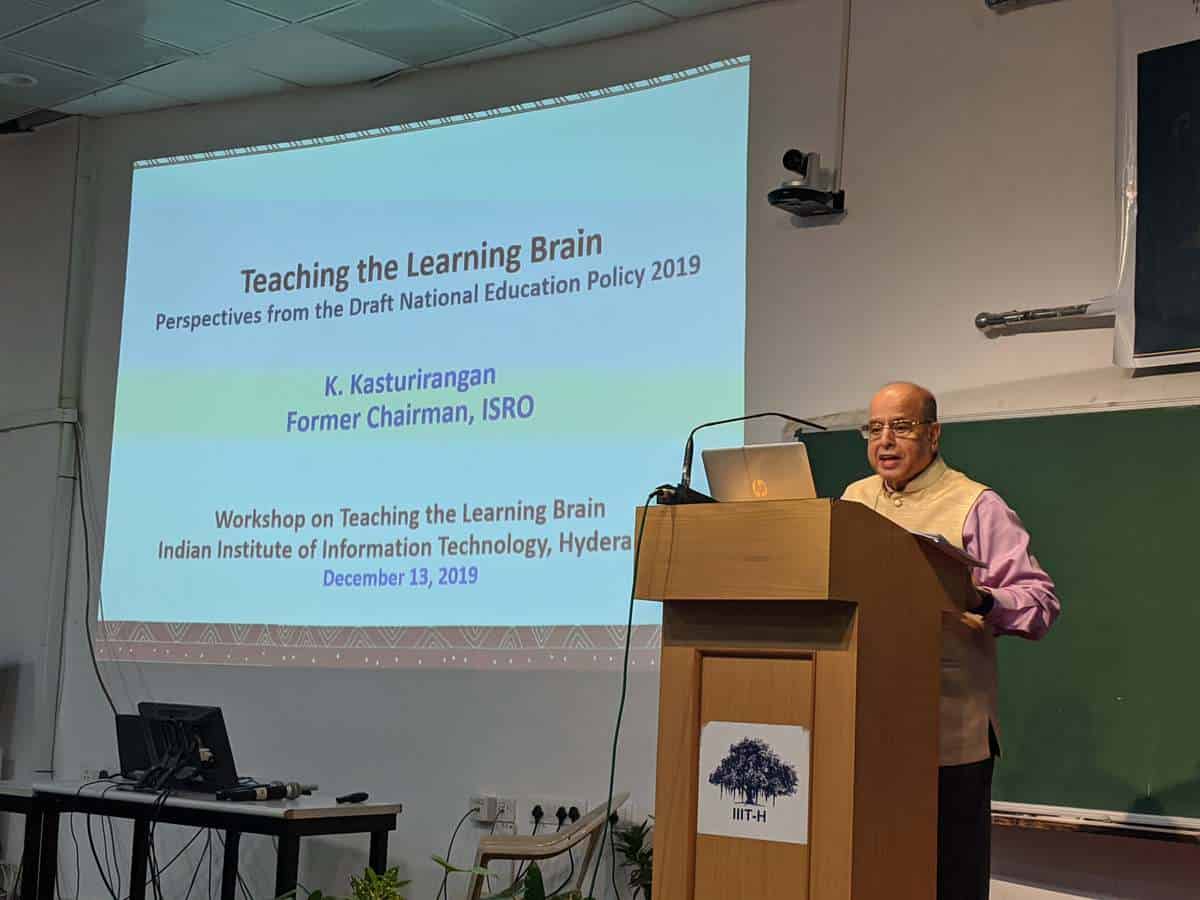Hyderabad: Dr Kasturirangan, Chairman, National Education Policy, inaugurated Teaching the learning Brain Workshop for school teachers of grade 1 to 8. He delivered a keynote address at the inauguration of the workshop organised by IIIT-Hyderabad at its premises on Friday.
The former Chairman of ISRO, Dr K. Kasturirangan, spoke about the importance of the foundational preparatory years in brain development of students.
Addressing the gathering he said, “I would like to thank IIIT Hyderabad for inviting me to speak on a subject that is now proving to be very critical in terms of the early education of a child. When we were formulating the policy on National Education we had a number of consultations on what is important for a child to learn, how do we create a development-appropriate education and effects of the brain on curriculum pedagogy etc”.
He further explained the framework relating to Early Child Care and Education (ECCE) and the next 4 stages of 5, 3, 3, and 4 years each as envisaged in the draft National Education Policy. DrKasturirangan chaired the committee that formulated the draft.
Researchers in neurocognitive sciences at IIIT-Hyderabad is conducting a 2-days workshop on Teaching the Learning Brain for school teachers of grades 1 -8 to introduce them to the aspects of cognition and neurodevelopment on learning. The program which kicked off on Friday will conclude on Saturday.
A school teacher faces the challenge of preparing classes that engage a class with the same age children, but with differential learning curves topic-wise, dissimilar conceptual understanding, with gaps in skills and disparate external (non-school) factors influencing them.
In addition, the child’s physical and emotional state affects the learning curve. Given the complexity, it is important for teachers to understand the brain from neurodevelopment aspect to design lessons appropriately and build an atmosphere of intellectual safety and trust to address the outliers (over-/under-performers) too.
Research in cognitive science, neuroscience/biology and psychology has thrown new light on learning processes and the factors affecting it. The knowledge from scientific studies helps address popular myths while giving a deeper understanding of motivation and metacognition.
This workshop brings the results of research into classroom teaching and is the first of its kind to address most if not all of the concerns of learning in an educational system as present in the Indian context.
“We want to introduce teachers to the concept of neuro-development and what children are capable of learning at various stages of development. The basic premise of the workshop is that learning happens differently for different children. Bringing about such awareness is perhaps the first step towards the larger goal of imparting education,” said KavitaVemuri, faculty at the Cognitive Sciences Research Centre and one of the lead organizers of the workshop.

